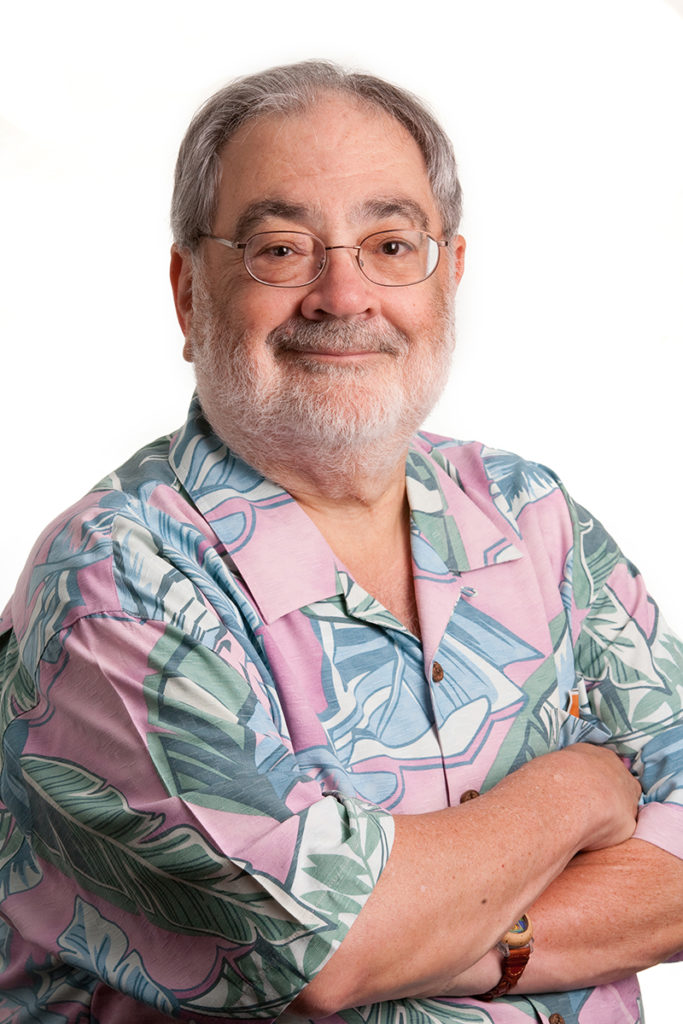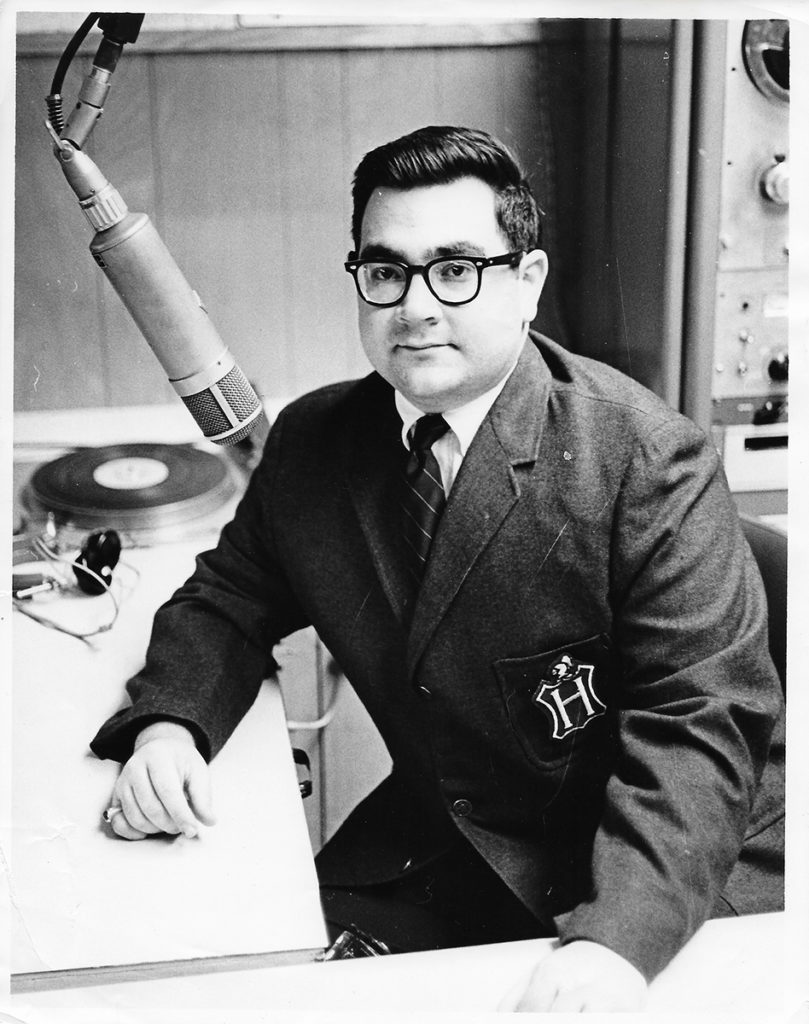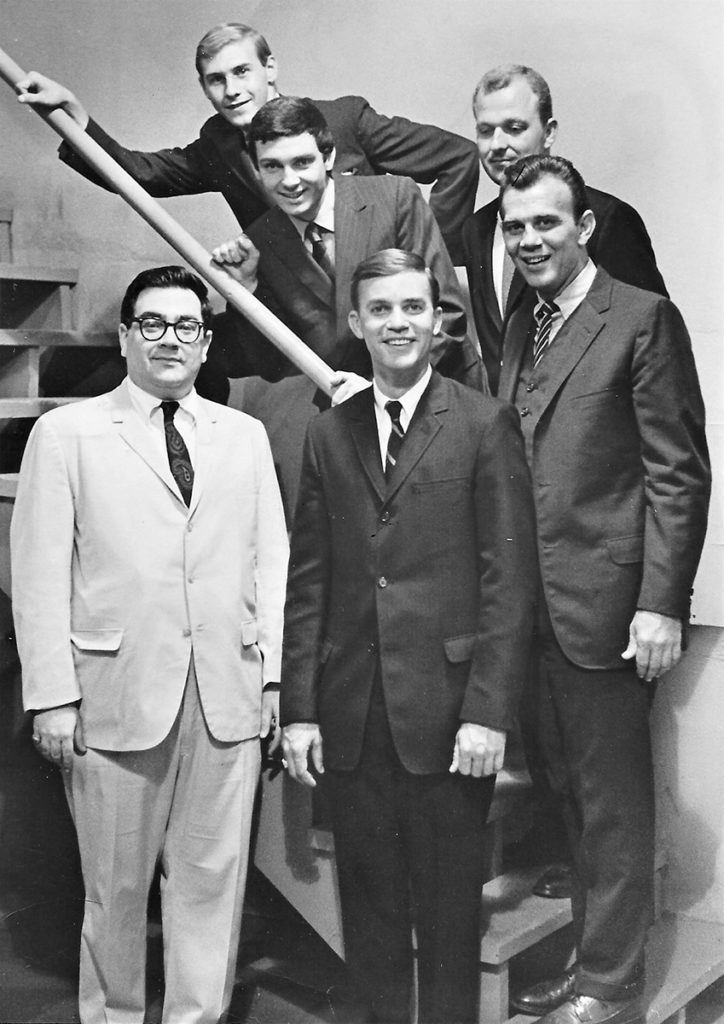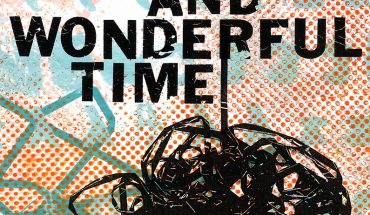The late longtime DJ known as Charlie Brown helped popularize the shag-dance genre along the Carolina coast in the 1960s.
by David Menconi
After Ed “Charlie Brown” Weiss died from cancer at 81 in October, it was impossible to imagine North Carolina’s radio airwaves without the legendary DJ’s voice.
In six decades on the air on radio stations across North Carolina, Weiss played just about every style of music in the book, but especially beach music. This R&B dance music was perfect for “shagging” — the state dance in North and South Carolina. The genre took shape in the years after World War II, when vacationing white listeners would play and dance to R&B songs, almost all by Black artists, on jukeboxes and at dance parties in coastal towns.
Because the phenomenon started out from records rather than live performances, the DJs spinning the tunes at sock hops and on the radio became popular. Charlie Brown was one of the signature on-air personalities playing beach music.
Born in Norfolk, Virginia, Weiss did his first radio work as a teenager there before coming to Chapel Hill to attend the University of North Carolina in 1959. He went to work for a series of stations in Virginia and North Carolina after graduation. And even when he was a Top-40 DJ at Raleigh’s WKIX-AM at the height of “Beatlemania” in the mid-1960s, his favorite music to spin was R&B acts like The Drifters and The Temptations.
His on-air name came from an R&B classic, The Coasters’ 1959 hit “Charlie Brown.” Craig Woolard, frontman of beach-music legends The Embers, recalls being in awe of Charlie Brown and the rest of the 1960s-era “Men of Music” DJs at WKIX-AM.
“I knew about Charlie Brown growing up in Washington, North Carolina, when I saw he wrote liner notes for a Drifters’ Greatest Hits album,” says Woolard. “That blew my 14-year-old mind. All the KIX ‘Men of Music’ were some of the biggest celebrities in town, Charlie especially. He’d emcee dances where The Embers would play. I don’t think we ever said no to him. He made a lot of things happen and was just a treasure.”
Indeed, if you went to a popular-music event in Raleigh during the 1960s, there was a good chance you’d see Charlie Brown onstage introducing the talent. He seemed to know everybody in the music business: pop star Dionne Warwick was a friend; General Johnson, lead vocalist of Chairmen of the Board (of “Give Me Just a Little More Time” fame), used to have Weiss listen to his recordings for prerelease advice; and when the Rolling Stones played North Carolina State University’s Reynolds Coliseum in 1965, Weiss picked them up at the airport and took them to get a bucket of Kentucky Fried Chicken before the show.
“We ended up at my apartment off of Buck Jones Road talking about old R&B records,” Weiss told me in 2015. “That was the music we had all grown up with and were into, and they wanted to see my collection. So they went through my 45s and ended up with a few.”
As Weiss continued playing beach music through the 1960s, an unofficial canon of classics began to develop. Weiss made that canon official with Beach Beat, a pair of Atlantic Records compilation albums he programmed from 1967 to 1968, selecting songs by artists like The Drifters, Coasters, Clyde McPhatter, Barbara Lewis and Willie Tee. (He was elected to the Carolina Beach Music Hall of Fame in 1996.)
Over the course of six decades, Weiss also amassed an impressive archive of interview recordings and autographed photos of the likes of Buddy Holly, Sam Cooke and Stevie Wonder. Much of that will wind up at his alma mater, in the Wilson Library’s Southern Folklife Collection.
Weiss worked behind the scenes, too, as manager of various stations across the Carolinas. But he never stopped DJing, launching the syndicated show On The Beach With Charlie Brown in 2003. Even after he went into “semi-retirement” in 2014, the show continued airing on 40 stations. Weiss would prerecord episodes from his home in Hillsborough, playing beach-music classics and telling stories.
Upon news of Charlie Brown’s death, there was a huge outpouring of remembrances from his far-flung circle of friends and associates. Suz Weiss, his wife of more than 50 years, says she received 500 messages within the first 15 minutes from people posting about his passing on Facebook. A pair of memorial gatherings in his honor are tentatively scheduled for early 2023 — one in Raleigh and one in Burlington, the two cities he worked in the most.
“Most people just knew ‘Charlie Brown’ on the air,” she says. “This fun-loving knowledgeable guy who knew everything about beach music and loved every minute of it. Off the air, Ed was one of the kindest gentlemen I ever knew. Whether they thought of him as Charlie Brown or Ed Weiss, everybody who knew him loved him.”
And as it turns out, we won’t have to stop hearing his voice, at least for a while. On the Beach With Charlie Brown will continue airing in reruns on 40 stations, including Raleigh oldies station WKIX.
“I am happy to report that all 40 stations have said it’s OK to have the show continue as a best-of,” says Chris Beachley, the show’s producer.
“Charlie Brown’s always been an easy sell because you could say his legend preceded him. When we first started and I was calling stations, one in Columbia said they had no room for another show. But when I told him who the talent was, the guy said, Charlie gave me my first job. Sign me up! He was the best.”
This article originally appeared in the December 2022 issue of WALTER magazine.







